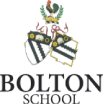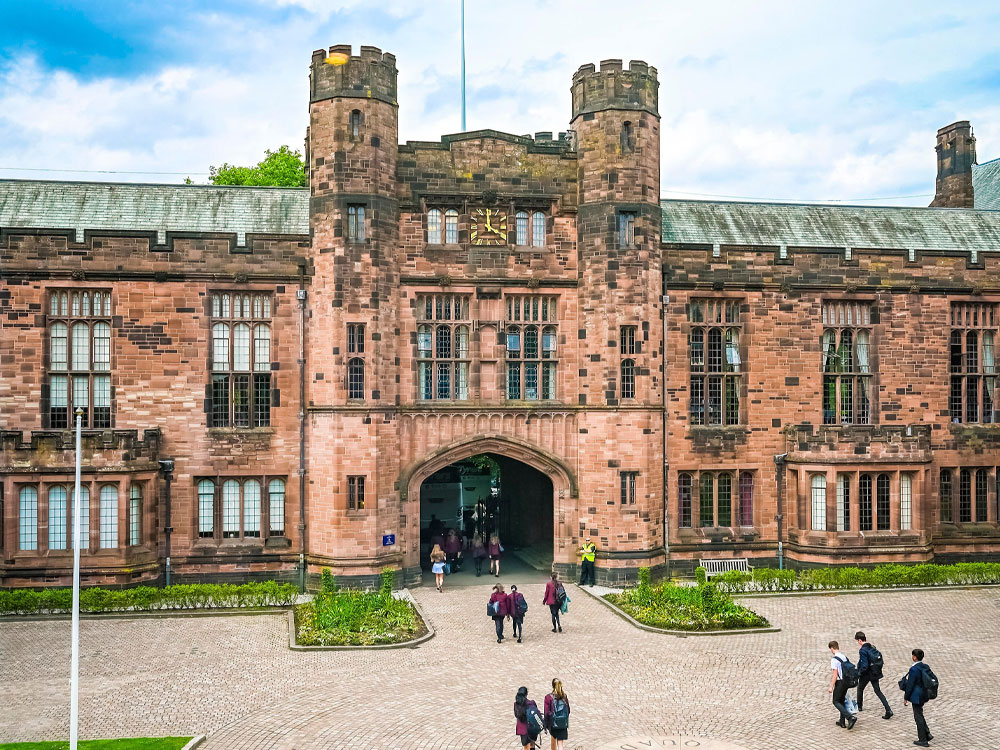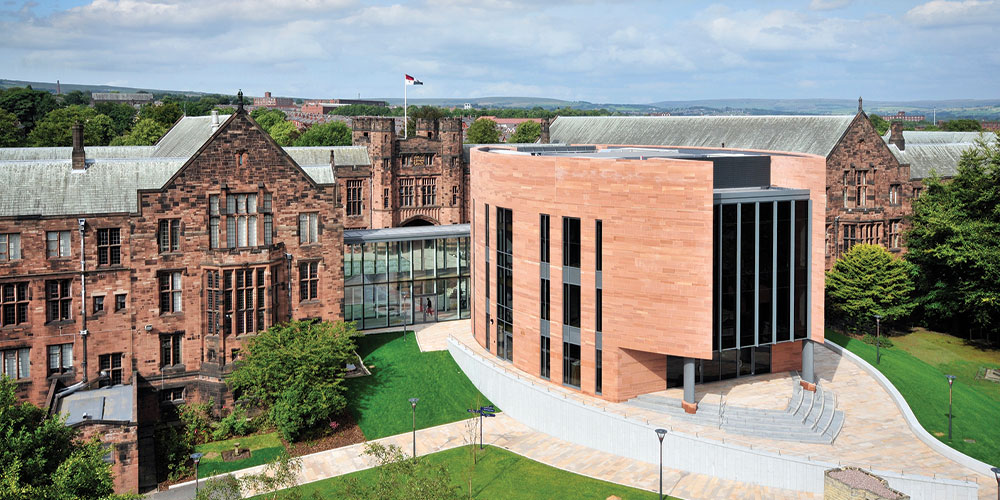Our Sixth Form is a warm and welcoming place, open to all sections of the community. It offers:
- Outstanding teaching, facilities and resources which will allow you to reach your full academic potential;
- Opportunities to lead, mentor and be role models for younger students from across the Bolton School Foundation, developing invaluable skills for your future;
- Opportunities to develop team-working, leadership and life skills through an incredible array of extra-curricular activities, through our Horizons Programme and through close supervision and pastoral care;
- Access to our joint Sixth Form Centre (the Riley Centre), shared with the Girls’ Division, where you can both study and socialise in a dedicated Sixth Form space; and:
- Expert guidance and assistance as you prepare for your future after completing the Sixth Form, to help you realise your ambitions, whatever shape they take.
Your Sixth Form years are intensive: they will be hard work, but they will also be fun, providing you with lifelong memories. Many Old Boltonians look back upon them as amongst the best years of their lives.
Yes, there will be high expectations, but you will leave us believing that everything you strive for is possible. You will explore exciting and extensive opportunities, be encouraged to be inquisitive and to innovate, to face challenge, take responsibility and show leadership, and to be a force for good in the community.
Welcome to our Sixth Form — we are sure you would thrive here.
Our Sixth Form Structure
The Boys' Division's Sixth Form prepares young men to make a difference for good in the world. In-depth, expert teaching, with a generous allocation of contact time, allows not only for comprehensive knowledge of content and examination technique but also nurtures the necessary interest and intellectual curiosity about the subject itself, to underpin sound choices for further study and future careers.
Our Sixth Form students choose three subjects to study at A Level. Each subject is studied for 13 periods each fortnight, with each period lasting 50 minutes. Teaching groups are usually no larger than 16, with most groups being much smaller.
Every student’s weekly timetable includes non-contact time, allowing for both independent study and leisure time.
A further eight periods each week are dedicated to personal development, in a bespoke Horizons Programme tailored by and for each student.
Each year, a small number of students undertake four full A Levels, for example students taking Further Mathematics usually take it as a fourth A Level.
The Sixth Form Curriculum
After taking GCSE examinations at the end of Year 11, most Bolton School students move up to the Sixth Form for a two-year A Level course. Each year our Sixth Form also welcomes about 10 new students from other schools. There is a good atmosphere in the Sixth Form and throughout the whole of the School and new students are welcomed and find themselves quickly settling in.
We offer a wide range of A Level courses and every effort is made to cater for individual subject selections, provided that these are sensible, and clearly lead somewhere worthwhile. Our aim is to design a programme which offers the greatest flexibility and opportunity for individual success. On occasion, subjects are taught jointly with pupils from the Girls’ Division to facilitate wider subject choice.
Learn More About our A Level Courses
The Horizons Programme
Alongside studying your A level courses, the Horizons Programme helps you to develop the character and skills you will need for adult life, preparing you for your future.
This programme can include additional academic study, for example the EPQ that promotes independent research and working, as well as well-chosen online courses and other certificated courses that promote individual interests and deepen studies.
It also includes a whole variety of activities and experiences to develop life skills. We know that success in future life hinges on how you interact with others as well as academic outcomes and we aim to explicitly provide the opportunity to develop these, though leadership, activity, discussion and input from external agencies.
The Horizons Programme also provides the space and resource for in depth work on Future plans: whether those be for Higher Education in the UK or abroad, degree apprenticeships or the world of work. We provide detailed preparation for assessment tests and processes, as well as advice based on many years' experience supporting university applications and interviews.
Learn More About the Horizons Programme
The Riley Centre
Sixth Form Boys share the Riley Sixth Form Centre with their peers from the Girls' Division. This shared space, which is exclusively for our Year 12 and 13 students, includes the common room and Riley Café, where drinks and snacks can be purchased and lunch is served each day; and a quiet study area upstairs where students can concentrate on their work and make use of the dedicated ICT suite.
Learn more about the Riley Centre
The Sixth Form is a time when you will deepen existing friendships and forge new relationships to sustain you for the rest of your life.

Our Alumni Network
Alumni Support — from the School’s network of 11,000 Old Girls and Old Boys — is plentiful in the Sixth Form.
Our Alumni live and work across the globe, and are keen to help current pupils. Boys take part in the Year 12 Entrepreneurship Scheme, and can have 1-2-1 conversations with Alumni offering their advice for the future.
At the end of Year 13, pupils automatically become members of the Bolton School Alumni Network, and through this they are able to connect with hundreds of former Bolton School pupils in their chosen field, thus providing them with unparalleled networking and career opportunities. For young Old Boys, the Find Your Path mentoring scheme offers access to a wealth of advice, knowledge and experience from Old Girl mentors who have walked the path ahead of them.











